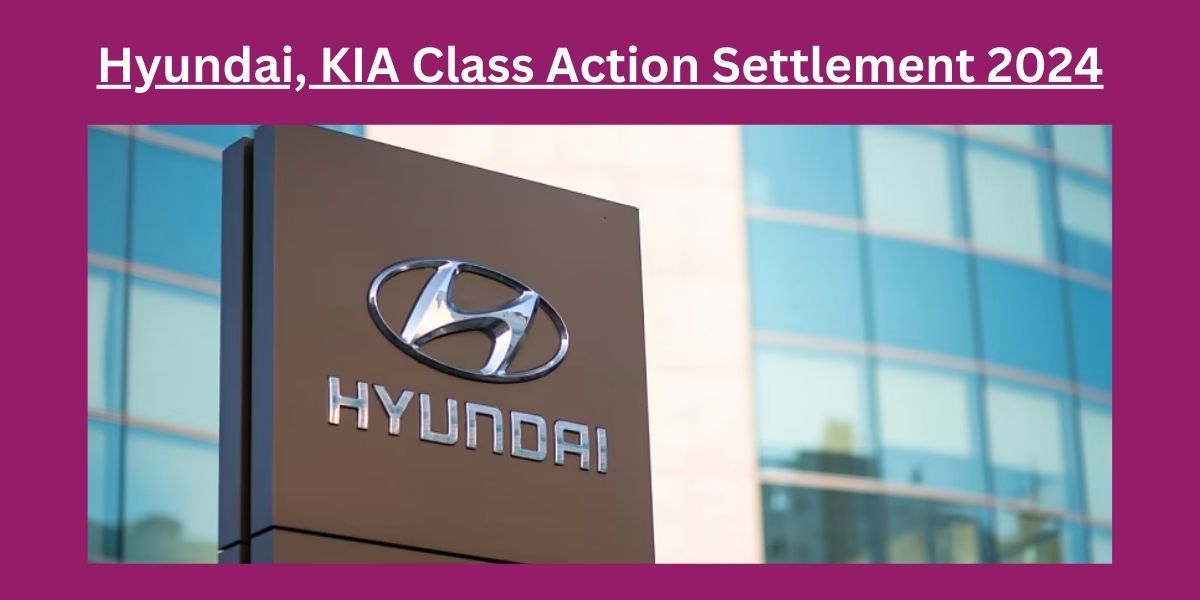If you’re a Hyundai or KIA owner, you might have heard the buzz about the class action settlement in 2024. But what’s the real deal? How does it affect you? And most importantly, are you eligible for a claim? Let’s dive into the nitty-gritty details and break it all down in a way that’s easy to understand.
What Sparked the Hyundai and KIA Class Action Settlement?
The Background: Why Did This Happen?
In recent years, a significant rise in thefts targeting specific Hyundai and KIA models caught everyone’s attention. The problem? Certain vehicles were found to have vulnerabilities that made them easier targets for thieves. Owners of these vehicles were understandably upset, leading to a flurry of complaints and eventually, a class action lawsuit.
The Core Issue: Vulnerable Vehicles
The heart of the matter lies in the security systems—or lack thereof—found in certain Hyundai and KIA models. Specifically, these cars were discovered to be lacking the standard immobilizer, a key feature that prevents cars from being hot-wired and stolen. As you can imagine, this oversight led to a surge in thefts, especially in urban areas.
The Legal Response: A Class Action Lawsuit
With growing concerns and a mounting number of thefts, affected car owners banded together, leading to a class action lawsuit against Hyundai and KIA. The claim? That the manufacturers were negligent in providing adequate security features, leaving their vehicles—and their owners—vulnerable to theft.
What Does the Settlement Entail?
The Settlement Agreement: What’s in It for You?
Fast forward to 2024, and we have a settlement agreement. Hyundai and KIA agreed to a class action settlement, meaning they are set to compensate affected car owners. But what exactly does this settlement include?
Compensation Details: What Can You Expect?
The settlement covers several forms of compensation, depending on your situation. This might include reimbursement for theft-related damages, the installation of security enhancements, and even monetary compensation for your troubles. The key takeaway? If your Hyundai or KIA was one of the vulnerable models, you could be eligible for compensation.
Security Enhancements: A Preventive Measure
One of the significant aspects of the settlement is the provision of security enhancements. Hyundai and KIA have committed to offering affected owners security upgrades to prevent future thefts. This might include software updates or the installation of additional anti-theft devices.
Are You Eligible for the Settlement?
Eligibility Criteria: Do You Qualify?
Now, the million-dollar question: Are you eligible for the settlement? Eligibility primarily depends on the model and year of your Hyundai or KIA. The settlement specifically targets vehicles lacking immobilizers, so if your car falls into this category, you’re likely in luck.
Affected Models: Which Vehicles Are Covered?
While the complete list of affected models is detailed in the settlement documents, a few of the commonly mentioned ones include:
- Hyundai Elantra (2011-2020)
- Hyundai Sonata (2011-2020)
- KIA Optima (2011-2020)
- KIA Sportage (2011-2020)
If your vehicle is on this list or a similar model, you should definitely look into filing a claim.
How to Check Your Vehicle: Simple Steps
Not sure if your car is eligible? The process to check is straightforward. Hyundai and KIA have set up a dedicated website where you can input your vehicle’s information—like the Vehicle Identification Number (VIN)—to see if you qualify for the settlement.
The Claim Process: How to Get Your Compensation
Filing a Claim: What You Need to Know
If you’re eligible, the next step is filing a claim. The process is designed to be as hassle-free as possible, but there are a few things you need to know.
Documentation: What You’ll Need
To file a claim, you’ll need to gather some documentation. This typically includes:
- Proof of ownership of the vehicle.
- Documentation of any theft-related damages (if applicable).
- Your vehicle’s VIN.
Having all of this ready will streamline the process and help avoid any delays.
How to Submit Your Claim: Step-by-Step Guide
Submitting your claim can usually be done online through the settlement website. Here’s a quick rundown of the steps:
- Visit the Settlement Website: Start by heading to the official settlement website provided by Hyundai and KIA.
- Enter Your Information: Input your VIN and other required details to verify your eligibility.
- Upload Your Documents: Attach the necessary documentation, like proof of ownership and any relevant receipts.
- Submit Your Claim: Once everything is filled out and attached, hit submit and wait for confirmation.
Deadlines: Don’t Miss Out!
One critical thing to keep in mind is the deadline for filing your claim. Settlement agreements often come with a strict deadline, and missing it could mean missing out on compensation. Make sure to check the specific dates and get your claim in on time.
What If Your Claim Is Denied?
Understanding Denials: Why It Might Happen
In some cases, claims might be denied. This could happen for several reasons, such as incomplete documentation or if your vehicle doesn’t meet the eligibility criteria. But don’t panic—there are steps you can take.
Appealing a Denied Claim: Your Next Steps
If your claim is denied, you typically have the option to appeal. The appeal process involves providing additional information or clarifying details that may have been overlooked in the initial submission. Make sure to carefully review the reason for the denial and address it directly in your appeal.
Seeking Legal Advice: Is It Necessary?
While the settlement process is designed to be straightforward, some cases might be more complex. If you find yourself in a tricky situation or if your appeal is denied, it might be worth seeking legal advice. An attorney can help guide you through the process and ensure you receive the compensation you’re entitled to.
The Bigger Picture: What This Means for Hyundai and KIA Owners
The Impact of the Settlement: A Step Toward Accountability
This settlement is a significant step toward holding automakers accountable for the security of their vehicles. For Hyundai and KIA owners, it means not only potential compensation but also improvements in vehicle safety and security.
Future Implications: Will This Happen Again?
While this settlement addresses past issues, it also sets a precedent for future cases. Automakers are likely to be more diligent in ensuring their vehicles meet security standards, which is good news for all car owners.
The Importance of Staying Informed: Knowledge Is Power
As a car owner, staying informed about potential issues with your vehicle is crucial. This case is a reminder of the importance of vigilance and the power of collective action. By staying informed, you can protect yourself and your investment.
Conclusion: Take Action Now
If you’re a Hyundai or KIA owner, now is the time to act. Whether it’s checking your eligibility, filing a claim, or simply staying informed, taking these steps can ensure you’re protected and compensated. Don’t wait until it’s too late—get the ball rolling today.
FAQs
1. What if I no longer own the vehicle? Can I still file a claim?
Yes, even if you’ve sold the vehicle, you may still be eligible to file a claim, especially if you incurred theft-related damages while you owned it. Make sure to provide documentation proving your ownership during the relevant time period.
2. How long will it take to receive compensation after filing a claim?
The time frame for receiving compensation can vary. Typically, once your claim is approved, it could take several weeks to a few months to process and deliver your compensation.
3. Can I opt out of the settlement?
Yes, if you do not wish to participate in the settlement, you have the option to opt out. This might be beneficial if you plan to pursue separate legal action against Hyundai or KIA.
4. What happens if I miss the claim deadline?
If you miss the deadline, you may forfeit your right to compensation under this settlement. It’s crucial to file your claim before the deadline to ensure you don’t miss out.
5. Will this settlement affect the resale value of my car?
The settlement itself is unlikely to affect the resale value of your car. However, the security enhancements provided as part of the settlement could potentially increase the vehicle’s value, as it addresses the theft vulnerability issue.










